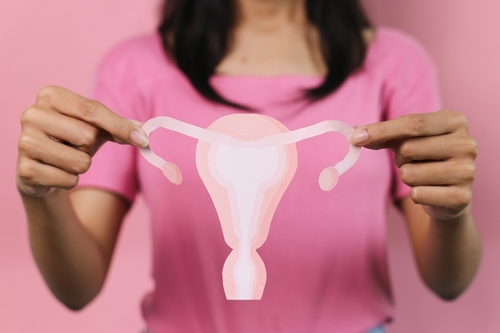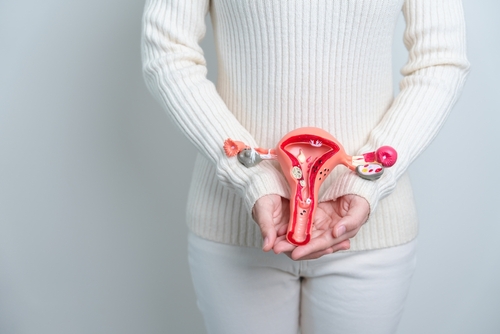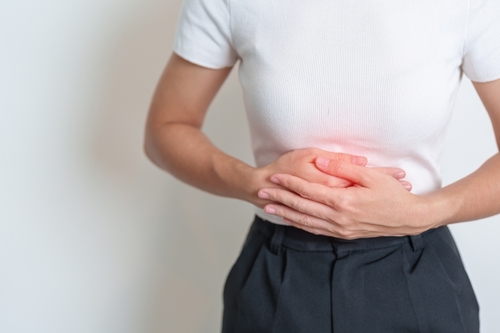
What are Uterine fibroids?
Uterine fibroids are non-cancerous growths in the uterus, commonly occurring during childbearing years. These growths, originating from uterine muscle cells, range from tiny, almost invisible sizes to large masses that can distort and enlarge the uterus. Fibroids develop for reasons that are not clear, although they may be linked to hormones or genetics. There are four types of fibroids such as intramural, intrauterine, submucous, and pedunculated. The condition results in different symptoms among women. Some may experience heavy bleeding and pelvic discomfort, while others could be asymptomatic.

Finding Relief from Uterine Fibroids through Ayurvedic Care
Ancient Indian Ayurveda provides holistic drug therapy for fibroids and benign uterine tumours. In Ayurveda, these are understood as an imbalance in the doshas, particularly Kapha. Treatment focuses on restoring balance through personalised diet, herbal remedies, and lifestyle changes. Key herbs like Ashoka, Guggul, and Turmeric are common for their anti-inflammatory and detoxifying properties. Ayurvedic therapies like Panchakarma detoxify the body. Yoga and meditation are also recommended for stress management and hormonal balance. Ayurvedic treatment for uterine fibroids in Kerala emphasises a natural, non-invasive approach, aiming at the root cause and overall well-being, contrasting conventional treatments that often involve surgery or medication.
Contact us to get the best Ayurvedic Treatment for Uterine Fibroid in Kerala.
Ayur Bethaniya, located in Kerala, India, stands out for its specialised approach to uterine fibroid treatment through Ayurveda. This centre is renowned for its expert practitioners who offer personalised treatment plans, integrating traditional Ayurvedic therapies with modern diagnostic methods. They focus on holistic healing, addressing the root cause of fibroids through a combination of herbal medicines, dietary modifications, and lifestyle interventions. Along with treatment, medicines following a healthy diet, and a regular lifestyle, yoga practice helps to eradicate the root cause of fibroids and keep away the recurrence of symptoms in the future. The serene, natural setting of Kerala, for its rich Ayurvedic heritage, enhances the therapeutic experience. Ayur Bethaniya is a non-invasive choice that naturally treats uterine fibroids with high-quality care, patient orientation, and real Ayurveda practice.
Feel free to contact us for queries regarding Ayurvedic Treatment for Uterine Fibroid in Kerala.
Need to know the ayurvedic treatment for Infertility and the ayurvedic treatment for Endometriosis.


